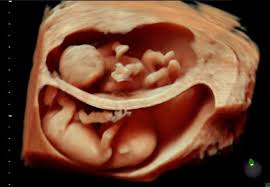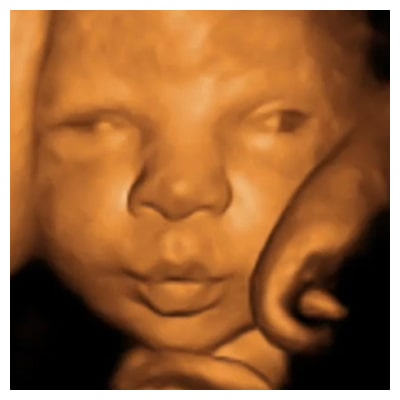Pregnancy is a beautiful phase in every women’s life because it is a blessing. It is that time when each and every family member looks forward to having the first glimpse of the baby. At the same time, expecting a mother is suggested with a lot of physical and mental health advice.
There are many tests and diagnoses conducted when you are expecting to keep a check on your health as well as your baby’s health. All these tests ensure you are delivering a happy, healthy and disorder-free baby. The mid-pregnancy scan gives a close look at your baby via the womb. Seeing your baby on the computer screen can be an overwhelming experience. Have you ever heard about the TIFFA scan? If not, then we will break it down for you from what Tiffa scan means to the uses of Tiffa scan and everything encompassing the two.
What is TIFFA Scan?
TIFFA test/scan is a crucial test that is conducted to get images of fetal movement and development. It is also known as a fetal anomaly scan And the TIFFA Scan full form is for Targeted Imaging for Fetal Anomalies. It is the ultrasound level II scan which is carried out in the second trimester. The Tiffa scan and anomaly scan have no differences. They are both the same and the terms are used interchangeably. It is a significant part of the second trimester and takes a closer look at the baby and the womb.
The main objective of the anomaly scan or the tiffa scan in pregnancy is to ensure the proper development of your baby and also, to examine the position of the placenta. The TIFFA scan image not only shows how the baby is developing inside the womb of the mother, but also ensures the proper position of the placenta.
The Need for TIFFA Scan:
By the beginning of the second trimester, most of the fetus’s vital organs are developed. An anomaly scan or tiffa test in pregnancy is conducted to detect internal and external disorders if any. A TIFFA scan is helpful to detect the issue so that necessary precautions can be taken.
Your doctor will check and take necessary measurements of all your baby’s organs at an early stage. The scan ensures:
- Proper development and movement of the fetus.
- Proper development of the baby’s internal organs.
- Find out if your baby has any birth problem
- Examine the blood flow of the uterus.
- Check the placenta, its placement and the umbilical cord.
- Check the amount of amniotic fluids.
- Your baby’s face shape.
- Your baby’s rib cage and spine to check for skin growth and bone alignment.
- Your baby’s kidneys determine the status of urine production.
- Equal growth and size of the ventricles and atria.
- Your baby’s limbs include its fingers and toes.
Preparation Tips For TIFFA Scan –
A TIFFA scan is a type of medical diagnostic test that is usually performed during pregnancy to check for infections that could harm the growing foetus as well as the mother. Some of the preparation tips for TIFFA Scan are explained in the following points.
- Based on medical history and condition, always consult with your doctor before going to TIFFA Scan.
- Wear a loose and comfy dress that makes it easy to scan the abdomen.
- Always follow the specific fasting instructions given by your doctor.
- Drink enough water to get well-hydrated which makes it easier for the doctor to draw blood.
- If you are nervous about the test, you might want to try some relaxation exercises like deep breathing or meditation to help you relax.
Importance of TIFFA Scan:
TIFFA scan in pregnancy is conducted during the 2nd trimester as this scan helps to detect any congenital abnormalities and issues in the growing baby. TIFFA scan examines the internal and external anatomy of the growing baby. This scan helps to identify and rule out the chances of chromosomal abnormalities and any genetic syndrome as early as possible.
TIFFA scan means to identify congenital anomalies that are both structural and functional abnormalities. That includes metabolic disorders, hearing defects, cerebral palsy, spina bifida, Down syndrome, etc.
Is TIFFA Scan Mandatory For All Pregnant Women?
Now, you must be wondering – is tiffa scan mandatory? This test is a must for all pregnant women who have a history of high-risk pregnancy or infection due to certain drugs. A TIFFA test/scan should be conducted on all the expecting mothers even if they are in the low-risk category. In fact, the TIFFA scan has helped to detect fetal anomalies even in low-risk pregnancies. No rule book has mentioned anything on the mandate of a Tiffa scan in pregnancy. However, it is a very crucial scan that should be done as we have seen what it helps in detecting above.
When TIFFA should be performed?
TIFFA scan is conducted during the second trimester i.e. between 18-23 weeks of pregnancy. TIFFA is a detailed scanning and examination procedure of a growing fetus to rule out all forms of abnormalities. It can either be a 3-dimensional or 4-dimensional scan. TIFFA scan in pregnancy is usually done in a high-precision lab, to get a normal report of TIFFA scan.
Important Parameters Measured in TIFFA scan:
- Shows how the baby is growing by checking the fetal movements.
- Detects birth defects and development of the internal organs
- Estimates of amniotic fluid volume
- Visualizes the position of the placenta and umbilical cord
- Detects chromosomal abnormalities
- Checks cervix and dilation of the birth canal
- Estimates fetal weight
- Fetal cardiac activities
TIFFA Scan Cost:
TIFFA scan is usually carried out in a high-precision lab. The TIFFA scan cost varies a little based on the facilities you opt for. The average TIFFA scan price in India is usually between INR 2500 to INR 3500.
How to Prepare for TIFFA Scan?
TIFFA scan is similar to the first-trimester scan but you do need to have a full bladder for this anomaly scan. This is because the baby has grown big enough to be seen clearly during the scan process.
Your tummy will be exposed for the scan, so is advisable to wear a two-piece cloth for the TIFFA scan. The ultrasound doctor will access your fully grown tummy and complete the scan procedure.
How TIFFA Scan is done?
As said earlier, the TIFFA scan in pregnancy is similar to the regular scan. The ultrasound doctor usually applies a cold gel on your exposed tummy and the transducer is moved on the tummy to get a clear image of the baby. During TIFFA the doctor usually tries to get multiple views of the baby from all possible direct angles including head to toe to get the most amount of information.
During the TIFFA scan, the sound waves are sent from the transducer which helps you to see the images of the baby’s organs and vital features on the computer screen. The doctor usually points to the baby’s organs like face, and hands while having a detailed analysis. During the 3D or 4D scan, you would be able to see a good image of your baby’s face.
Another one of your questions might be if the Tiffa scan is internal or external. Since a transducer is manoeuvred over the belly, the procedure is external and does not require internal intervention of any kind.
Time Duration of TIFFA Scan:
Many hospitals and diagnostic centres need about 25-35 minutes to carry out the TIFFA scan. After half an hour, you can get the TIFFA scan report for baby boy.
What anomalies can be identified in a TIFFA Scan?
During the TIFFA scan, ultrasound doctors scan the baby from head to toe. They usually identify both internal and external anomalies during the scan. Some conditions are treatable after the baby is born. There is rarely some condition that can turn out to be fatal.
If the condition is treatable, the doctor will inform you with advice regarding the right care and diagnosis as soon as you deliver the baby. The conditions like cardiac defects and bowel issues cannot be found until the later stage of pregnancy.
What if Some Issue is detected during TIFFA Scan?
If the ultrasound doctor finds an issue during the scan, it will be informed to you via your gynaecologist. Based on the problem, the doctor will guide you with the right advice and health care suggestions.
Avoid any sort of panicking, it will make your pregnancy more complicated. Discuss the issue with the doctors, they will help you through the next procedures. There are some scenarios where the baby might need treatment or surgery after birth or when it is in the womb.
Serious problems are usually rare, in the worst-case scenario, some families might need to make the roughest decision i.e. whether to continue or not with the pregnancy.
TIFFA scan in pregnancy is a part of routine prenatal care and is a normal diagnosis. TIFFA scan is a crucial diagnosis that provides the best possible assessment of the health of the fetus inside the womb. Moreover, the TIFFA scan provides you with an opportunity to see a clear scan picture of the baby along with the fetal movement.
Is a TIFFA scan painful?
TIFFA scan does not hurt at all however a slight pressure might be applied on the belly to get the best views of the baby.
The TIFFA scan is an important and extremely necessary part of all the health checkups you undergo throughout your pregnancy. Ensure you take the scan on time so you do not miss out on vital information about the baby and get a proper TIFFA scan report.
FAQ’s On Tiffa Scan:
1. What does pregnancy level 2 scanning involve?
The level 2 pregnancy scanning is where the doctor examines your child’s organs, brain, umbilical cord, gender, and other things apart from your previous Tiffa ultrasound scans. Alongside your baby’s pulse rate and growth, the amount of amniotic fluid in your womb will also be assessed. The test can help identify birth problems. The Tiffa scan procedure is a procedure where a doctor evaluates your screening findings, medical history, and early detection and intervention history before performing a level II ultrasound to pinpoint the precise areas where issues can arise. This will allow the doctor to know if they need to specifically check any particular area or focus on something important. Each level II ultrasound is tailored to the unique risk factors of the mother and her unborn child.
2. Which week is best for Tiffa scan?
Thinking when is the right time to go for a level 2 scan or how the Tiffa scan is done? Usually, a Tiffa scan uses during the second trimester of pregnancy, pregnant women get this scan done. Nevertheless, the 20th week of pregnancy is the best time to have the ultrasound done. It is important to get each scan done at the correct time frame to ensure that everything is fine with the baby as well as the mother. Any difficulties during pregnancy need to be identified and treated immediately.
3. What scan comes after the Tiffa scan?
Post the Tiffa scan, a growth scan is used for the check-up of a pregnant woman. At this scan, your doctor will take your child’s measurements once more to be certain all of that is progressing according to the schedule for your childbirth. If your doctor believes you must give birth to your baby a few weeks earlier owing to their size, you’ll get to know about it all after the scan. A growth scan can be performed between the 36th and 40th weeks before your due date.
4. In which month will the Tiffa scan be done?
An extensive ultrasound scan of the mid-pregnancy is called the anomaly or target scan. It is carried out to examine your unborn child’s age, development, amniotic fluid content, placental position, and the development of their heart, brain, and other organs. It searches for diseases like spina bifida and cleft lip. If an anomaly is discovered, it doesn’t necessarily mean that your kid isn’t growing properly, but further research will be required. You will get a second scan to confirm the position of your placenta in the third trimester if the scan reveals a low-lying placenta. The majority of your baby’s important organs have already formed by the halfway point of your pregnancy. At this point in pregnancy, every woman undergoes a scan because, if a problem is found, appropriate measures must be taken.
Doing a Tiffa scan in which month of pregnancy is best? Anytime between 18 and 20 weeks into the fifth month of pregnancy, an abnormality scan is performed.
Your doctor will advise you on when to schedule the anomaly scan and any other testing you require. Typically, this is near the end of the first trimester or the beginning of the second trimester.
5. Can we know the gender in a Tiffa scan?
The gender of your unborn child can be determined by 20 weeks of pregnancy. It is normal to be interested in the sex of your unborn child, yet prenatal sex determination is illegal in India. The alarmingly high prevalence of female foeticide is to blame for this. Skewed sex ratios exist in many Indian states as a result of the selective abortion of female foetuses.
Every ultrasound centre and hospital should have a sign that reads, “Sex-determination testing is against the law and will result in legal action.” You are also breaking the law if you inquire about your baby’s sex. Before your ultrasound, most hospitals and diagnostic facilities will ask you to sign a statement promising not to question the doctor about the gender of your unborn child.
So, you won’t find out whether you’re having a male or a daughter until after the baby is born.
6. What is the full form of TIFFA?
The TIFFA full form is Targeted Imaging for Fetal Anomalies.
7. How much time is required for the Tiffa scan?
A TIFFA Scan is an abdominal ultrasound that takes 30-45 minutes.
8. Is it necessary to drink water before Tiffa scan?
Generally, a full bladder is required for a TIFFA scan to properly visualize the womb. You are advised to fill your bladder by drinking water before the operation by your physician or sonographer.
Read More Post
1. 100 symptoms of baby boy
2. Minor games
| Are you Pregnant? Come along. Let us explore the world of Pregnancy week by week by looking at fetal development, moods & symptoms with do’s and don’ts and pregnancy-related frequently asked questions. |
|---|
- Top 20 Fancy Dress Ideas For Girls - March 13, 2022
- TIFFA Scan (Ultrasound Level II Scan) - April 13, 2021
- Home Remedies for Getting Periods Faster - March 1, 2021
- Top 15 Fancy Dress Ideas For Preschoolers - August 23, 2020
- Best 10 Fancy Dress Ideas For Boys - August 22, 2020
















